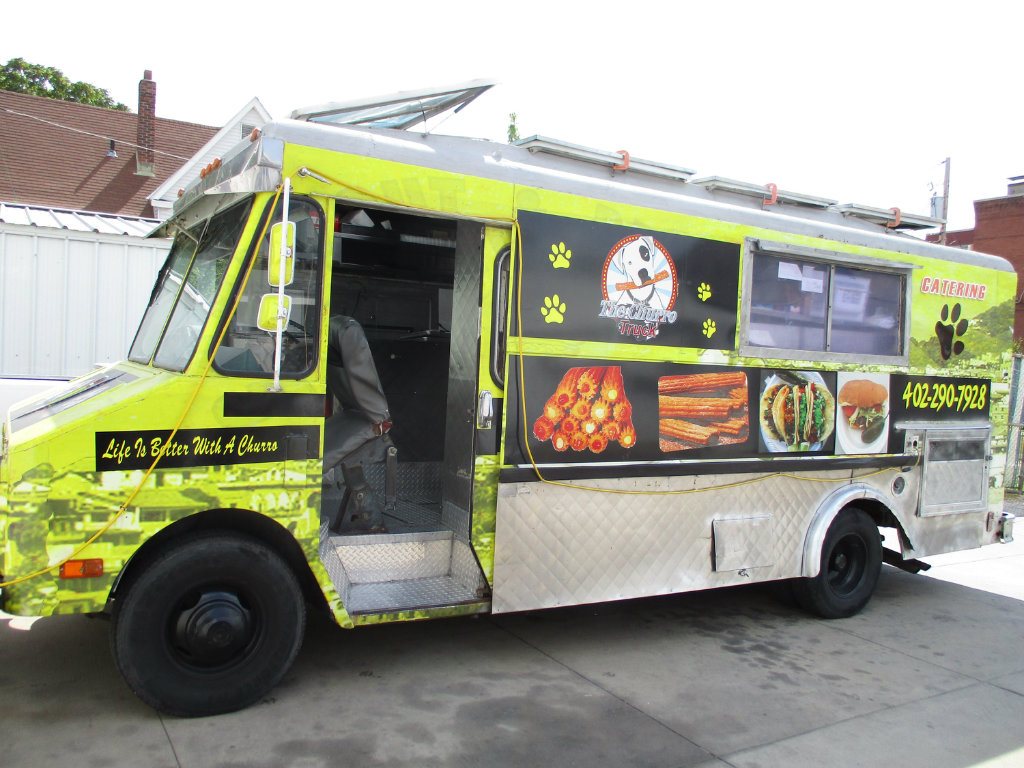Commercial insurers must adapt to new kinds of properties…
 Some new industries with unusual insurance concerns have steadily increased in popularity in recent years. Carriers and their partners constantly have to adjust their practices to ensure they are providing the proper amount of coverage to these new, relatively unfamiliar businesses.
Some new industries with unusual insurance concerns have steadily increased in popularity in recent years. Carriers and their partners constantly have to adjust their practices to ensure they are providing the proper amount of coverage to these new, relatively unfamiliar businesses.
The burgeoning food truck industry is a prime example of a growing industry with unique insurance concerns. While these establishments have some of the same issues of concern that restaurants do, kitchen equipment, for example, there are also the same concerns associated with automobile insurance.
Food truck owners normally have to deal with a complex combination of different policies, including commercial auto, business owner, and commercial general liability insurance, to name a few. Some carriers are going so far as to even create a distinct Food Service Vehicle insurance policy to offer these kinds of businesses, in order to provide them with the right kind of coverage.
…as do personal lines carriers…
Personal lines insurers are not immune to these constant changes either. While, generally speaking, a home will always have walls and a roof, there are numerous structural and technological innovations gaining popularity amongst homeowners. For example, some home technology devices, such as water leak detectors and smart thermostats, can be beneficial when it comes to monitoring a risk and preventing major losses. In fact, these devices are now seen so positively, that some carriers are offering discounts to homeowners that utilize them. But the big question is, how do you know that they are?
 It must become a part of the initial inspection process. A Millennium client decided to start offering certain benefits to smart home device users and we were able to create a set of referrals that would allow an inspector to confirm whether or not reported systems were, in fact, being utilized in a home.
It must become a part of the initial inspection process. A Millennium client decided to start offering certain benefits to smart home device users and we were able to create a set of referrals that would allow an inspector to confirm whether or not reported systems were, in fact, being utilized in a home.
With these new kinds of policy types and home technologies, must also come a new approach to those inspections.
…but how?
Take the earlier example of food trucks. Carriers need to know the same type of information about these businesses that they do for any other commercial auto policy. At the same time, it’s vital they also receive a lot of the same information gathered during a commercial food survey. Doing two separate types of inspections for one business is not a good use of a carrier’s time or money. For example, a food truck will not have the same types of alarms or security systems as a brick and mortar restaurant, but it will have some of the same kitchen concerns. Their partners need to give carriers the facts they need to underwrite for that specific business, without superfluous or unnecessary information, including results of an inspection that is not an exact fit for that business type.
Furthermore, vendors must be aware of all other new property innovations, like the smart home devices discussed earlier, that may affect how a carrier views that policy. Inspection services must provide adequate training for inspectors to recognize these new innovations, as well as confirm that information and relay it to the carrier.
To ensure carriers receive the right, specific information they need for each kind of policy, vendors need to adapt their inspection forms to match these unique structures and businesses. It’s vital to take into account the distinctive combination of issues these unique properties have, in order to efficiently get that necessary information to the carrier.
As every insurance carrier pursues market opportunities, they take on new challenges for their underwriters. Suffice it to say, one size does not fit all when it comes to inspections. Very few vendor partners are well positioned to assist carriers with these challenges. However, with a veteran staff of insurance professionals, Millennium Information Services is well prepared to identify and solve those new issues with confidence.
Get Information You Need
Whether a carrier expands into a new geographic area or sees a change in their customer’s behavior, adapting their inspection process is critical. Insurance carriers do not just need to understand the changes developing within their customer base. They also need to be able to gather specific data on how these changes are affecting the risks they insure.
Urban Areas: Rehabbed Homes
A Millennium client that specifically covers urban areas, which are primarily made up of older homes, needed additional insight into these risks. These homes are often either in need of updating or have already undergone full rehabs. This client hoped to avoid major losses through high-risk homes in need of updating. Originally, this client attempted to get the information they needed through an Electrical Heating and Plumbing supplement. Although this provided significant details regarding these systems, the carrier needed specific information which would indicate prior rehabilitation efforts. To meet this need, Millennium created an entirely new supplement, designed to fit their specifications and inform underwriters if a home has been extensively remodeled recently. The ability to designate rehabbed homes from those in need of updating allowed this client to offer discounts or other incentives to homeowners with lower risk dwellings.
High-Value Homes: Technology Early Adopters
Some new client opportunities are not geographic but are instead based on consumer demographics that a carrier may choose to target. With advances in home protection devices, many carriers are now considering, if not already providing discounts and incentives to homeowners who are embracing the latest home technologies, especially devices like temperature and flood monitors.
One of Millennium’s carriers who provide sophisticated coverages to mid and high-value homes needed to verify their customer’s utilization of protective smart home devices. Millennium was able to incorporate the identification of this type of technology into our inspection process specifically for that client with new smart home referrals. These referrals alert this carrier when a homeowner has implemented some of these devices so they can apply policy incentives for select policyholders.
Specific Underwriting Guidelines: Highly Scrutinized Inspections
While some carriers may not have demographic or geographic needs that warrant a specific solution, many still have very specific underwriting guidelines to which their inspection vendors need to adhere. For example, while Millennium’s commercial inspection forms cover all the critical data points needed to properly rate these risks, carriers need inspectors and quality review staff to observe a set of guidelines specific to their requirements. For this particular need, Millennium field management maintains specialized inspector training for each carrier program and provides details regarding the specific requirements of each client to ensure that the carrier specific instructions are understood and applied uniformly in the field and by our quality review team.
Each time an insurance company pursues new market opportunities, their underwriters will face new challenges. To be effective business partners, their vendors need to be prepared to help develop solutions and strategies to meet those challenges with confidence. Millennium Information Services has a staff with decades of underwriting experience and is able to provide carriers with solutions to every unique challenge they face.

